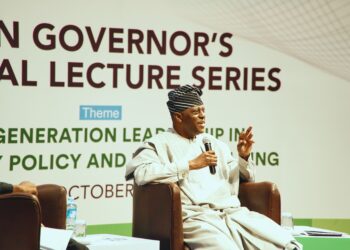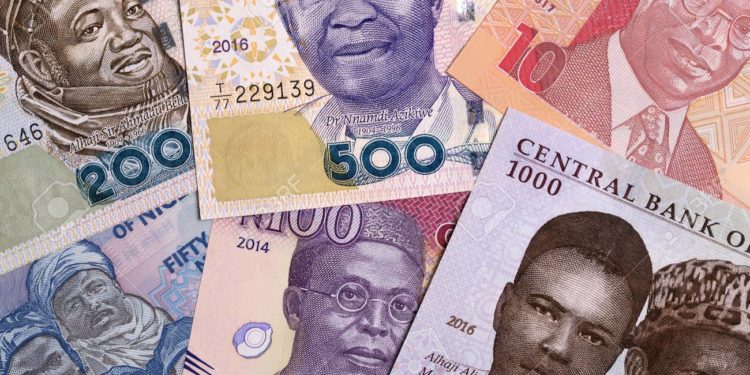Olayemi Cardoso, the recently appointed Governor of the Central Bank of Nigeria, has expressed his commitment to addressing the apex bank’s outstanding foreign exchange obligations as a top priority in the immediate future.
He made this statement on Tuesday during the Senate members’ screening session.
Cardoso pledges to bolster transparency, address corporate governance issues, and guarantee the autonomy and integrity of the bank, instilling confidence.
- “We need to promptly find a way to take care of that. It would be naive for us to expect that we’ll be making too much progress if we’re not able to handle that side of the foreign exchange market,” he said.
Furthermore, the newly installed CBN governor has expressed his plan to ensure price stability, shift towards evidence-based monetary policies, and put an end to the unconventional monetary measures introduced by his predecessor, all to boost the value of the naira.
As the nation contends with a decline in economic indices and the Nigerian Naira’s alarming proximity to the 1,000/$ mark on the parallel market, Cardoso’s confirmation assumes significant importance.
According to Cardoso, the immediate plan to stabilize the naira will be for the apex bank to settle existing financial obligations and make “transparent rules.”
Explaining how to tackle what he referred to as an ‘operational challenge,’ he stated:
- “Right now, we have a situation where we are aware that there are unsettled obligations by the CBN. Whether it is $4bn, $5bn, or $7bn, I don’t know but the immediate priority will be to verify the authenticity and extent of what is owed.
- “Number two, apart from the operational issue, there is one that is system related that involves ensuring that we come up with open rules, and transparent that any of the players in that area understands. We can’t expect foreign investors and portfolio investors to come; we can’t expect them if there is no open, transparent system that everyone understands.
- “In setting up those guidelines one will carry the relevant stakeholders along and the comment was made earlier that one should be ready to engage everybody and hear views. Those two things, though they may seem simple, will go a long way to easing up the restrictions we are having on people (investors) that want to come in.”
Folashodun Shonubi, who served as the Acting CBN Governor until recently, made a significant announcement on September 6, 2023. He stated that negotiations between the apex bank and commercial banks regarding dollar debts had been successfully concluded. Shonubi assured that all outstanding forex exchange backlogs would be fully addressed within the coming one to two weeks.
Cardoso on Inflation Rate
Speaking further, the newly confirmed CBN governor has articulated a clear strategy to address the country’s ongoing issue of inflation.
In his statement, he emphasized the importance of implementing policies that are grounded in “empirical evidence“ and “data-driven analysis.”
He said,
- “When you look at the dimension of inflation, we will be doing evidence-based monetary policy. We shall not be making decisions based on a whim. We will significantly rebound the infrastructural demand concerning ensuring that our data-gathering capacity is enhanced so we can make decisions based on proper data.
- Nigeria’s inflation surged to 25.80 percent in August 2023, 1.72 percentage points higher than the 24.08 percent recorded in the previous month.
- Cardoso emphasized that credible research indicates that over the last decade to fifteen years, a significant 50 percent of inflation has been attributed to the increase in money supply and deficit financing.
- “This is a big problem at least it certainly has been over some time and it’s something we have to face frontally,” he noted.
Cardoso added that avoiding deficit financing would tackle money supply issues.
Suspension of Intervention Programmes
In the screening process, Cardoso made it clear that the central bank’s independence and credibility should be reinstated through a renewed focus on its core mandate and the promotion of a culture that prioritizes compliance, stating that the CBN will not be used to finance the fiscal deficit of the federal government.
- “Much has been made of past CBN forays into development financing such that the lines between monetary policy and fiscal intervention have become blurred.
- “In refocusing the CBN to its core mandate, there is a need to pull the CBN back from direct development finance interventions into more limited advisory roles that support economic growth”, he said.
As of October of the prior year, around N9 trillion had been allocated as intervention funds by the central bank.
The bank had said that about N3.7tn had been repaid by beneficiaries while over N5tn was not yet due for recovery.
On unhealthy bank charges, the banker said that the team would review the situation and come up with the required position.
What You Should Know
Earlier, Nairametrics reported that the Senate has confirmed the nomination of Dr. Olayemi Cardoso as the next Governor of the Central Bank of Nigeria (CBN).
This follows the screening by the Upper Chambers of the National Assembly. The Senate also confirmed the nomination of the four Deputy Governors of CBN.
The four deputy governors whose appointments were confirmed by the Senate are Emem Usoro, Muhammad Dattijo, Philip Ikeazor, and Bala Bello.
























